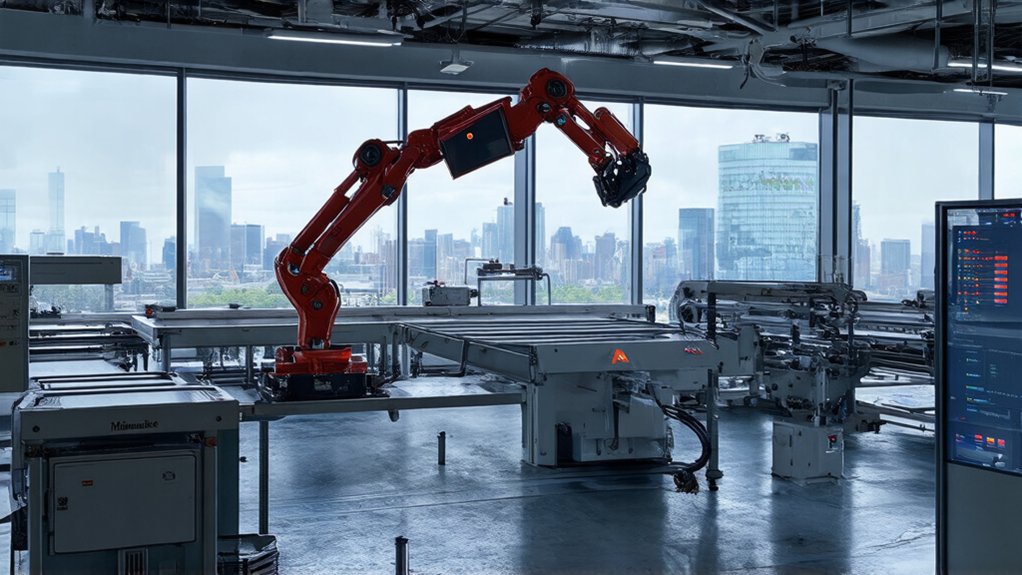Nearly every industry in Milwaukee is witnessing a tech revolution that’s reshaping careers faster than most workers can adapt. The numbers don’t lie: tech jobs are projected to surge 7.1% by 2032, with AI specialists specifically expected to see a whopping 40% jump in demand by 2027. That’s not just impressive—it’s downright terrifying for those still clinging to the “computers are just a fad” mentality.
Milwaukee’s tech tsunami is coming. Adapt or get washed away in the digital tide.
Milwaukee’s big players aren’t sitting around waiting. Northwestern Mutual, Rockwell Automation, and GE Healthcare are practically begging for people with AI and machine learning skills. They need folks who understand IoT, cloud computing, and cybersecurity. According to the World Economic Forum, over 40% of working hours will be impacted by large language models in the coming years.
Yesterday’s factory worker is today’s robot whisperer.
The transformation is hitting everywhere. Manufacturing? AI’s streamlining operations. Healthcare? Sift Healthcare and Etyon Health are using AI to optimize payments and analyze mountains of patient data. Remote AI work is becoming increasingly common as companies embrace digital collaboration tools and shared platforms.
Even Milwaukee Tool is tracking equipment with AI now. Your hammer has an algorithm. Let that sink in.
Local colleges got the memo years ago. MSOE offers AI certificates, MATC launched IT programs with AI focus, and UWM created graduate certificates in machine learning. MSOE is continuously updating their programs to ensure they don’t become rapidly outdated content in this fast-evolving field.
There’s even a Microsoft/UWM AI Co-Innovation Lab focusing specifically on manufacturing applications. Education is scrambling to keep workers relevant.
But here’s the thing—AI isn’t necessarily killing jobs. It’s changing them. The robots aren’t taking over; they’re just handling the boring stuff.
Humans are being freed up for complex problem-solving, which sounds great until you realize not everyone wants to be a problem solver.
Wisconsin’s government sees the writing on the wall. The Governor’s Task Force on Workforce and AI is studying impacts and recommending policies to protect workers while leveraging AI to fill labor gaps.
They’re betting AI could actually advance equity and create economic opportunity.
Will it work? Who knows. But one thing’s certain—Milwaukee workers who don’t adapt might find themselves as obsolete as floppy disks.
